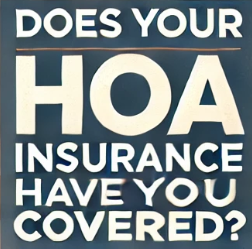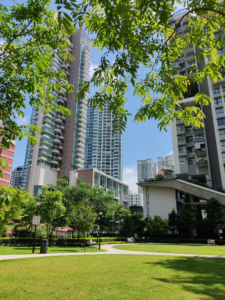Many condo owners assume their HOA insurance policy has them fully covered, but that’s a costly misconception. From personal belongings to unexpected assessments and liability inside your unit, there are crucial gaps that only your own condo insurance can fill. Dive into our guide to learn why an HO-6 policy is essential, what it covers, and how to ensure your investment is fully protected. Don’t get caught unprepared—discover the hidden risks and how to safeguard your condo today!
Why Every Condo Owner Needs Their Own Insurance: Beyond What Your HOA Covers
Owning a condo comes with the unique balance of individual ownership and shared community responsibility. Many condo owners, however, are under the impression that their HOA’s master policy provides full coverage for their units. Unfortunately, that assumption can lead to costly surprises when damage or other losses occur. An HOA policy typically covers common areas and some structural elements of the buildings, but condo unit owners still need their own insurance (often called an HO-6 policy) to address their specific needs. Let’s break down why condo insurance is essential and the critical gaps it fills in areas such as interior fixtures, personal property, and liability.
At NEXTIER Insurance, we specialize in providing customized HOA insurance solutions, ensuring you have the coverage you need. Our team of experts can guide you through the specifics of an HO-6 policy and help you protect your investment.
1. Interior Fixtures, Finishes, and Improvements
While your HOA’s master policy might cover the basic structure of the building, it’s unlikely to provide adequate protection for the custom fixtures, finishes, and improvements within your individual unit. Even when an HOA policy provides “all-in” coverage (meaning it covers certain fixtures like floors or cabinetry), you’re likely responsible for any losses that fall below the HOA’s deductible. If that deductible is high — say, $10,000 or more — you could be liable for a substantial expense.
Tip: Check your HOA’s policy to understand what, if any, interior elements are covered and the deductible amount. An HO-6 policy can protect you by covering those interior improvements, from flooring to custom cabinetry, for losses up to the HOA deductible.
2. Personal Property and Contents
Your personal property, such as furniture, electronics, clothing, and kitchen items, isn’t covered under the HOA’s master policy. In the event of damage from a covered event, such as a fire or water leak, your HO-6 insurance steps in to protect these items.
Tip: Take an inventory of your belongings and estimate their replacement cost. This helps you determine the right amount of personal property coverage, so you’re not left short in a loss.
3. Loss of Use / Additional Living Expenses (ALE)
If your condo is damaged and you can’t live there while repairs are being made, additional living expenses (ALE) coverage can help you cover the cost of temporary accommodations, meals, and other out-of-pocket expenses. This is especially valuable if you need to stay in a hotel or short-term rental while your home is being restored.
For condo owners who rent out their units, loss of rents coverage can replace lost rental income during repairs, ensuring you don’t lose out financially.
Tip: Review your HO-6 policy to see what limits are available for ALE. Some policies also offer options to increase this amount if you anticipate higher living expenses in the event of a claim.
4. Personal Liability Exposures
If someone is injured inside your condo or you’re held responsible for accidental damage to another person’s property, personal liability coverage is invaluable. Your HOA’s master policy generally won’t cover incidents that happen inside your unit, so having this coverage helps shield you from potentially costly lawsuits and medical expenses.
Examples of Liability Scenarios:
- A visitor trips over a rug and injures themselves.
- You accidentally cause water damage to a neighboring unit.
Tip: Consider purchasing at least $300,000 to $500,000 in liability coverage, and speak with your insurance agent about umbrella coverage if you need higher limits. Many policies allow you to increase coverage for only a small additional premium.
5. Loss Assessment Coverage
Your HOA may require each unit owner to contribute to costs when certain losses affect common areas or when there is a significant HOA insurance claim. This is especially relevant if the HOA’s master policy falls short or has a high deductible.
Loss assessment coverage in your HO-6 policy can help you cover these unexpected costs. For example, if there’s a major loss in a shared area like the community pool, and the HOA assesses each unit a share of the deductible, this coverage could step in to help.
Tip: Look for policies that offer at least $10,000 in loss assessment coverage, as this is a standard requirement in many HOAs. Some policies also allow you to increase your loss assessment limit to $50,000 or more if you expect higher assessments in your community.
6. Auto Physical Damage and Auto Liability
Condo living often comes with community garages or parking structures, but if your car is damaged while parked there, the HOA’s insurance policy likely won’t cover the repairs. An individual auto insurance policy with comprehensive and collision coverage can help cover costs for damage to your vehicle, whether it’s vandalized, stolen, or damaged by natural events.
Likewise, your auto liability coverage will be critical in the event you are responsible for an accident.
Tip: Review your auto policy to ensure you have both liability and physical damage coverage, as many condo owners mistakenly assume damage in community garages is covered by the HOA. Consider uninsured/underinsured motorist protection, as well, especially if you’re in an area with a higher rate of uninsured drivers.
7. Earthquake Loss Assessment
In earthquake-prone areas, an earthquake insurance policy for condo owners can offer critical financial protection. Earthquake insurance is often excluded from both individual HO-6 policies and HOA master policies, meaning owners need separate coverage to be fully protected. Earthquake loss assessment coverage protects you from costly assessments the HOA may levy after an earthquake damages common areas.
Tip: Earthquake insurance often comes with high deductibles, so it’s important to plan for out-of-pocket expenses. Talk to an agent about purchasing a policy that includes loss assessment coverage specifically for earthquake damages.
Steps to Take for the Right Coverage
- Review the HOA’s Master Policy
Start by understanding what your HOA policy covers and, more importantly, what it doesn’t. Reach out to your HOA board if you need a copy of the policy and ask questions about their coverage limits and deductibles. - Conduct a Personal Inventory
Document the personal property inside your condo, along with any interior upgrades. This inventory will help you set coverage limits on your HO-6 policy and streamline claims. - Get an HO-6 Policy with Customizable Coverage
Work with an insurance agent who specializes in condo insurance to ensure you get an HO-6 policy tailored to your specific needs. Make sure it includes coverage for your interior finishes, personal belongings, liability, and loss assessments. - Consider Additional Policies for Gaps
In areas prone to natural disasters, like earthquakes or floods, ask about supplementary policies or endorsements to ensure complete protection. - Regularly Reassess Your Coverage
Over time, your insurance needs will change as you acquire new belongings, make updates to your condo, or your HOA policy changes. Make it a habit to review your coverage annually and make adjustments as needed.
Final Thoughts
Having a comprehensive HO-6 policy for your condo is crucial for peace of mind. While your HOA master policy might provide some level of coverage, only an individual policy tailored to your specific needs can fully protect your investment, your belongings, and your financial future. Condo insurance may seem like an additional expense, but when unexpected events arise, it can prevent financial strain and ensure you’re fully covered.
At NEXTIER Insurance, we are experts in HOA insurance, and we are here to help you understand your coverage options and ensure you are adequately protected. Contact us today to review your insurance needs and get the right coverage for your condo.






